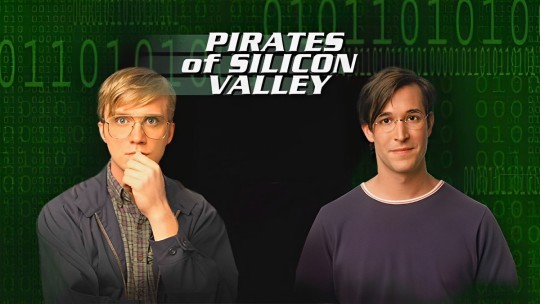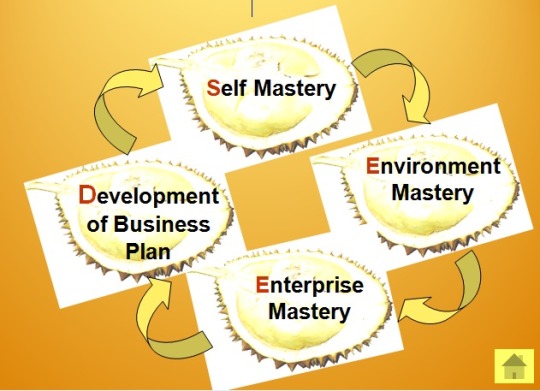Don't wanna be here? Send us removal request.
Text
My Journey in Technopreneurship: Lessons Beyond the Classroom

Starting my technopreneurship class was an eye-opener from day one. Our professor set the tone right away: "I'm not going to baby you," he declared, reminding us that we were in college now, not high school. This reality check was amplified when he noticed some classmates were not wearing the prescribed uniform. He made them stand up and gave them a choice: perform a talent or leave the class. Hesitant and embarrassed, they chose to leave. He also implemented a rule for latecomers—perform a talent in front of the class. Unfortunately, I was late twice during the semester and had to sing both times. It was mortifying, but I understand that I must respect the rules. Our professor taught us invaluable lessons: punctuality, adherence to regulations, and the importance of a professional dress code—all critical traits for our future careers.
Our subject's main focus was entrepreneurship within the realm of technology. We were introduced to the entrepreneurial mindset and the intricacies of the business world. The structure of the class was unique. Instead of exams, we had to complete Learning Evidences:
Writing a blog
Making an elevator pitch for a techno-business idea
Preparing a business plan
The journey to come up with a unique and novel technology innovation idea was anything but easy. My first pitch took place in the AVR (Audio Visual Room), accommodating our entire section—BSIT-BTM and the BSIT-IS. Preparedness was crucial in defending your idea- you needed to make sure it was novel and didn't exist in the market, know all the facts about it, explain it well, and overall, it must be close to your heart and within your interests to have the drive to defend it. Our professor allowed us to discuss along with our PowerPoint presentations uninterrupted. We had to identify a problem, propose an innovative solution, explain its features, and outline its profitability. After presenting, our professor and the audience would ask questions.
Approval was a democratic process: thumbs up for approval, thumbs down for rejection, but ultimately, our professor had the final say. My first pitch was not approved. Nor was my second. Or my third. Finally, on my fourth attempt, my idea was accepted. The second to the fourth pitches took place inside the classroom, which felt more intimate and less daunting than the AVR.
Achieving approval was a fulfilling moment. The road to that point was challenging and filled with moments of self-doubt and frustration. However, each failure taught me valuable lessons, such as thinking outside the box and never giving up. Failure isn't a setback; it's a stepping stone. Each rejection was an opportunity to refine my idea and approach.
This journey underscored the importance of perseverance. "Don't get discouraged by failure; instead, use it as motivation to improve." This mantra became my guiding light throughout the course. Every unsuccessful pitch was a lesson in resilience. I learned to view mistakes not as defeats but as part of the learning process.
One key takeaway was the significance of loving what you do. Passion drives innovation and commitment. If you love what you do, it doesn't feel like work; it feels like a purpose. This passion sustains you through the tough times and fuels your drive to overcome obstacles.
Writing the blog, the first of our LEs, helped me articulate my thoughts and refine my ideas. Crafting an elevator pitch taught me the importance of brevity and clarity—presenting a complex idea is a valuable skill. The business plan, though daunting, was an exercise in detailed planning and strategic thinking.
In retrospect, this technopreneurship class was about more than just learning business concepts. It was about personal growth, developing a resilient mindset, and acquiring skills that transcend the classroom. It was about learning to navigate the uncertain waters of entrepreneurship with confidence and determination.
Reflecting on this experience, I realize how much I've grown. The initial embarrassment of singing in front of my classmates as a latecomer was just as valuable as the lessons ive learned and the skills acquired. The technopreneurship class taught me that success isn't about avoiding failure; it's about embracing it, learning from it, and persistently pushing forward.
So, to my fellow students and aspiring technopreneurs, think outside the box, don't give up, and never be afraid to make mistakes. Use every challenge as a learning opportunity, and let your passion guide you. The journey may be challenging, but the rewards are worth it. Love what you do, and you'll find fulfillment every step of the way.
0 notes
Text
Finding Inspiration in '3 Idiots': Lessons for Life and Learning
Initially, I thought "3 Idiots" was just another boring, dialogue-heavy film, especially since I prefer action, thriller, and comedy genres. However, watching it with my family proved the old saying to be true: "Don't judge a book by its cover." Once I gave it a chance, this film was a touching, funny, and deeply meaningful story. It quickly became a favorite, and I recommend it to my friends, classmates, and anyone looking for a genuinely good movie.

Summary and Themes
"3 Idiots" is a transformative story about three friends – Farhan, Raju, and Rancho – and their journey through engineering school. Each character brings a unique perspective on the pressures of education and the importance of pursuing one's passions. The film's strength lies in its storytelling, blending humor, emotion, and insightful commentary on the educational system. It addresses serious issues, such as student suicides due to academic pressure, and offers hope through its message of following one's dreams and finding joy in learning.
My Journey as a Struggling Student
When I started college, I was uncertain and anxious about my future. The first semester was manageable as a full-time student. I could dedicate all my time to studying and learning new skills. However, things took a turn in the second semester when my family's financial situation worsened. I had to take up a part-time job to support myself and help out at home.
Balancing work and studies was incredibly challenging. There were days I thought about giving up, feeling like I couldn't handle the pressure. This is where Raju's story resonated deeply with me. His struggles with academic pressure and family expectations mirrored my own. Watching him persevere gave me the strength to keep going despite all odds. I often found myself repeating Rancho's mantra, "All is well," to calm my nerves during stressful times. It was a simple reminder to keep a positive outlook, no matter how tough things got.
Rancho's philosophy, "Pursue excellence, and success will follow; pants down," reminded me that focusing on being the best version of myself would eventually lead to success. Instead of aiming solely at getting high grades, I started concentrating on understanding and enjoying what I was learning. This shift in perspective allowed me to find joy in learning rather than feeling overwhelmed by the end goal of success.
The Power of Friendship
One of the most heartwarming aspects of the movie "3 Idiots" is the friendship between Rancho, Farhan, and Raju. Their bond reminded me of my friends, who have supported me through thick and thin. As Farhan and Raju relied on Rancho, I leaned on my friends during tough times.
There were countless nights when we studied together, shared notes, and encouraged each other. They helped me stay on track academically, but more importantly, they were there for me emotionally. On days when I felt like I was drowning in responsibilities, a simple snack break with my friends or a pep talk was enough to lift my spirits.
Moreover, the movie taught me that taking a different path and facing setbacks is okay. Rancho's wisdom, Farhan's courage to follow his dreams, and Raju's resilience have all been sources of inspiration. These characters showed me that success is not just about academic achievements but also about personal growth and the relationships we build.
Rancho's advice, "Aspire to be inspired," became my guiding principle. It reminded me to seek out inspiration in everyday life, whether through my studies, friendships, or personal experiences. This mindset helped me stay motivated and find meaning in my journey, even when the path seemed uncertain.
0 notes
Text
High Seas of Innovation: Lessons from "Pirates of Silicon Valley"
Ahoy, mateys! As a first-year IT student diving into the world of technology and innovation, I recently embarked on a cinematic voyage with "Pirates of Silicon Valley." This film is a gripping tale of the rise of tech giants Apple and Microsoft. It offers a treasure trove of lessons and insights that resonate deeply with anyone navigating the tumultuous waters of college life and beyond. Here's my take on the movie and how its quotes and situations can inspire us.

Unlocking Creativity
"Good artists copy, great artists steal." - Steve Jobs
From the get-go, "Pirates of Silicon Valley" introduces us to Steve Jobs and Bill Gates, two college dropouts who would revolutionize the tech industry. This quote by Jobs, though controversial, underscores a critical lesson: innovation often involves building on existing ideas. As a first-year student this encourages me not to shy away from seeking inspiration from others' work. It's about taking what exists and making it better, more unique, and more impactful.
The Power of Vision
"People who are crazy enough to think they can change the world are the ones who do." - Steve Jobs
Jobs' relentless pursuit of his vision for Apple is a testament to the power of believing in oneself. As I struggle with balancing assignments, part-time work, and personal projects, this quote reminds me that ambition often requires a touch of madness. It's this audacity that drives innovation and progress. So, while my late-night coding marathons may seem insane, they could be the foundation for something extraordinary.
Sailing Against the Current
"It's better to be a pirate than to join the Navy." - Steve Jobs
This metaphorical piece of wisdom speaks to the rebellious spirit of entrepreneurship. Jobs' disdain for conventional corporate culture encourages us to embrace unconventional paths. However, the film also explores the ethical dilemmas that come with such a mindset. As students, we are often at a crossroads, deciding between following the beaten path or forging our own. This quote and the movie push us to question our choices: Are we ready to take risks? How far will we go to achieve our dreams?
The Dark Side of Success
"Success is a menace. It fools smart people into thinking they can't lose." - Bill Gates
Gates' words highlight the perils of becoming complacent after achieving success. Watching him and Jobs navigate their empires' highs and lows, I realize that the journey doesn't end with success; it requires constant vigilance and adaptation. Which means we must continuously learn, evolve, and stay humble no matter how many small victories come our way.
Friendships and Betrayals
The film delves into the complex relationships between Jobs, Wozniak, Gates, and Allen. These friendships, often strained by ambition and betrayal, remind me of the importance of trust and loyalty. College life is full of group projects and collaborations. Maintaining healthy relationships with peers is crucial, as these bonds can significantly impact our personal and professional growth.
The Drive for Perfection
"We're here to put a dent in the universe." - Steve Jobs
Jobs' ambition to create products that change the world is nothing short of inspiring. This quote fuels my desire to aim high and strive for excellence in everything I do. It's a reminder that our work can have a profound impact, and we should always aim to leave a lasting legacy.
Reflecting on My Journey
Watching "Pirates of Silicon Valley" has been enlightening. The movie's depiction of relentless innovation, ethical dilemmas, and the personal costs of ambition resonates deeply with my own experiences and aspirations. It challenges me to think critically about my goals, the risks I'm willing to take, and the values I hold dear.
As I try balancing the pressures of academics and personal growth, the stories of Jobs and Gates remind me that every great journey begins with a single step. Their successes and failures are a testament to the resilience and vision required to make a difference.
So, to my fellow students, let's embrace the spirit of these tech pioneers. Let's be bold, take risks, and strive to leave our dent in the universe. After all, in the words of the film, "The best way to predict the future is to invent it."
As you set sail on your journey, are you ready to be the captain of your own ship, exploring the uncharted waters, or will you remain anchored in the safety of the harbor?
1 note
·
View note
Text
Nurturing the Seeds of Technopreneurship: From Mindset to Mastery
Hey there, fellow aspiring technopreneurs! Today, let's discuss the fascinating world of entrepreneurship, comparing the mindsets of both entrepreneurs and employees, and then journey through the SEED model of technopreneurship.

Mindset Matters
Picture yourself inside a classroom, your professor at the front, discussing the fundamental difference between an entrepreneur and an employee. Entrepreneurs, driven by a fire in their hearts. They are architects of their destiny, charting their own course and shaping their future, reveling in the freedom to innovate, experiment, and fail forward. On the other side, employees find comfort in the predictability of their routines, the security of their paychecks, and the stability of their positions.
Independence vs. Structure
One of the main differences between entrepreneurs and employees is their approach to independence. Entrepreneurs relish the freedom to set their schedules, pursue their passions, and march to the beat of their own drum. They thrive in environments where creativity reigns supreme, and rules are meant to be broken. On the contrary, employees find solace in their roles' structure, their routines' predictability, and the comfort of following established protocols.
Income and Risk
When it comes to income, entrepreneurs face a rollercoaster ride of highs and lows. Their earnings are directly tied to their ventures' success and can be affected by market trends, customer demand, economic conditions, etc. While the potential for financial freedom is limitless, so is the risk of failure. On the other hand, employees enjoy the stability of a fixed salary, with predictable paychecks and benefits. Though their income may lack the sky-high potential of entrepreneurs, it offers a safety net in times of uncertainty.
Satisfaction and Fulfillment:
At the core of it all lies the question of satisfaction and fulfillment. For entrepreneurs, success is measured not only in dollars and cents but also in impact and legacy. They derive immense satisfaction from building something from nothing, solving problems, and leaving their mark on the world. Employees, meanwhile, find fulfillment in different ways – through job security, work-life balance, and the camaraderie of colleagues. While their paths may diverge, both entrepreneurs and employees seek meaning and purpose in their endeavors.

Mastering the SEED Model:
Now, let's proceed to the SEED model – a framework essential for nurturing the entrepreneurial spirit within us.
Self-Mastery: As first-year students, we often grapple with the question, "Who am I?" Self-mastery is the key to unlocking our true potential. By understanding our strengths, weaknesses, passions, and values, we pave the way for success. It's about setting clear goals, staying true to ourselves, and channeling our inner drive into everything we do.
Environment Mastery: Ever wonder where great business ideas come from? It's all about mastering your environment. Environmental mastery is about being agile and adaptable, keeping a keen eye on emerging trends, understanding consumer behavior, or leveraging cutting-edge technology. It's about turning challenges into opportunities and staying ahead of the curve.
Enterprise Mastery: Enterprise mastery is the heart and soul of entrepreneurship. From marketing management to operations, finance, and risk management, it's about wearing multiple hats and juggling countless responsibilities. We must master the art of strategic planning, resource allocation, and decision-making. After all, a successful business is built on a solid foundation of knowledge and expertise.
Development of Business Plan: Last but not least, we come to the cornerstone of technopreneurship – the business plan. Crafting a compelling business plan isn't just about numbers and projections. It's about articulating your vision, outlining your strategies, and vividly portraying your future success. But remember, a great business plan isn't set in stone – it's a living document that evolves with your journey.
Let's remember to nurture the seeds of technopreneurship within us. Let's embrace and master the SEED model and dare to turn our dreams into reality. After all, the future belongs to those who dare to innovate, to those who dare to dream.
0 notes
Text
Crafting Success: Guy Kawasaki's Trailblazing Wisdom
During our technopreneurship class, our professor mentioned Guy Kawasaki, a name that was new to many of us. Kawasaki was a former Apple evangelist and a venture capitalist with a knack for transforming ideas into successful ventures. This introduction piqued my interest, and I knew I had to learn more about this influential figure. Intrigued by his story and insights, I decided to dig deeper into his philosophy and experiences. What I found was a treasure trove of wisdom.

The Art of Starting
One of Kawasaki's core messages is the importance of just starting. He says, "Ideas are easy. Implementation is hard." This quote struck me. How often do we brainstorm amazing ideas only to let them fizzle out because we wait for the perfect moment? Kawasaki's advice is clear: start now and refine your ideas as you go, just like throwing around innovative ideas during a brainstorming session for class projects. Kawasaki would urge us to pick one and dive in, rather than waiting for the stars to align.
Embrace Risk and Dare to Innovate
Kawasaki stresses the necessity of taking risks. He famously said, "The biggest risk is not taking any risk." In the dynamic world of technology, playing it safe often means missing out on groundbreaking opportunities. His stories of startups that dared to innovate remind us that bold moves can lead to remarkable success. Don't be afraid to challenge the status quo. Whether you're developing a new app or a revolutionary piece of hardware, bold innovation can set you apart.
The Power of Imperfection
"Don't worry, be crappy," Kawasaki advises. This counterintuitive nugget of wisdom encourages us to launch products even if they aren't perfect. Waiting for perfection can paralyze progress. Instead, get your product out there, gather feedback, and improve iteratively.
How often have we held back our projects because they weren't polished enough? Kawasaki's perspective invites us to embrace imperfection and learn from real-world use.
Persistence Pays Off
Kawasaki's journey is a testament to the power of persistence. "If you believe enough in what you're doing, keep going. If you believe in yourself, keep going. If you believe in your mission, keep going." This is a mantra that we, as students, can adopt when facing setbacks. Think about the times we've had to pitch our ideas in class, facing rejection and refining our concepts. Kawasaki's story reminds us that persistence is the key to eventually achieving success.
Know Yourself and Your Team
Self-awareness is crucial in technopreneurship. Kawasaki advises, "Your time is limited, so don't waste it living someone else's life," quoting Steve Jobs. Understanding our strengths and weaknesses allows us to focus on what we do best and find partners who complement our skills. Conduct a self-assessment to identify your core competencies and build a team that balances out your weaknesses with their strengths.
Marketing Your Vision
Marketing is an art that Kawasaki has mastered. "You have to have a desire to be an evangelist," he says. This means passionately promoting your vision and convincing others to believe in it too.
How can we, as aspiring technopreneurs, develop our unique voices to passionately share our visions with the world?
Learning from Failure
"Failure is not something to be avoided; it's something to be embraced," Kawasaki asserts. Each failure offers invaluable lessons and brings us a step closer to success.
Remember the times our business ideas were rejected in class? Each rejection allows us to refine our ideas and approach, learning and growing with each attempt.
Building Meaningful Relationships
Kawasaki emphasizes the importance of networking and building solid relationships. "The best way to get noticed is to do something exceptional," he advises. Networking isn't just about collecting contacts; it's about creating meaningful connections and proving your value through actions.
Engage in industry events, participate in online forums, and reach out to potential mentors. Demonstrate your passion and commitment through your work.
Final Thoughts
Guy Kawasaki's journey and insights are incredibly inspiring for us as budding technopreneurs. His emphasis on starting now, embracing risks, learning from failure, and persistently pursuing our goals offers a roadmap for success. Kawasaki's philosophy encourages us to take bold steps, embrace imperfection, and continuously innovate.
Reflecting on what I've learned from Kawasaki, I am more equipped to tackle the challenges of technopreneurship.
1 note
·
View note